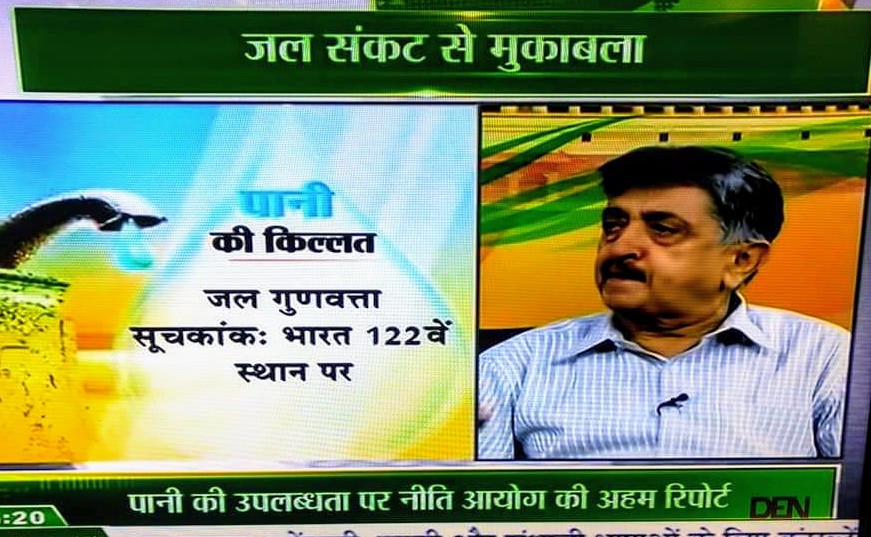Once actor Balraj Sahni asked the Nobel Laureate Rabindra Nath Tagore, “You have written the National Anthem for India, can you write an International anthem for the whole world?”
“It has already been written, not only international but for the entire universe, in the 16th century by Nanak”, replied Tagore. He referred to the Sikh Arti (ceremony of light) Gurudev Tagore was so enamoured of this arti that he personally translated it into Bangla language.
As legend has it, in 1508 CE
Guru Nanak Dev visited the famous temple of Jagannath at Puri in Orrisa, which was very well known for its arti for Lord Krishna. In the evening, priests brought a platter full of many lighted lamps, flowers, incense and pearls and began the arti…
Guru Nanak Sahib meanwhile spontaneously gave words to the wonderful arti which was being hummed by Nature before the invisible altar of God, the creator of this universe:
रागु धनासरी महला १ ॥
Raag Dhanaasree, First Mehl:
गगन मै थालु रवि चंदु दीपक बने
तारिका मंडल जनक मोती ॥
(Upon that cosmic plate of the sky, the sun and the moon are the lamps. The stars and their orbs are the studded pearls)
धूपु मलआनलो पवणु चवरो करे
सगल बनराइ फूलंत जोती ॥१॥
(The fragrance of sandalwood in the air is the temple incense and the wind is the fan. All the plants of the world are the altar flowers in offering to You, O Luminous Lord)
कैसी आरती होइ ॥
(What a beautiful Aartee, lamp-lit worship service this is!)
भव खंडना तेरी आरती ॥
(O Destroyer of Fear, this is
Your Ceremony of Light)
अनहता सबद वाजंत भेरी ॥१॥ रहाउ ॥
(The Unstruck Sound-current of the Shabad is the vibration of the temple drums)
सहस तव नैन नन नैन हहि तोहि कउ
सहस मूरति नना एक तोही ॥
(You have thousands of eyes, and yet You have no eyes. You have thousands of forms, and yet You do not have even one)
सहस पद बिमल नन एक पद गंध बिनु
सहस तव गंध इव चलत मोही ॥२॥
(You have thousands of Lotus Feet, and yet You do not have even one foot. You have no nose, but you have thousands of noses. This Play of Yours entrances me)
सभ महि जोति जोति है सोइ ॥
(Amongst all is the Light -You are that Light)
तिस दै चानणि सभ महि चानणु होइ ॥
(By this Illumination, that Light
is radiant within all)
गुर साखी जोति परगटु होइ ॥
(Through the Guru’s Teachings, the Light shines forth)
जो तिसु भावै सु आरती होइ ॥३॥
(That which is pleasing to Him is the lamp-lit worship service)
हरि चरण कवल मकरंद लोभित मनो
अनदिनो मोहि आही पिआसा ॥
(My mind is enticed by the honey -sweet Lotus Feet of the Lord. Day and night, I thirst for them)
क्रिपा जलु देहि नानक सारिंग कउ
होइ जा ते तेरै नाइ वासा ॥४॥३॥
(Bestow the Water of Your Mercy upon, says Nanak, the thirsty song-bird, so that he may come to dwell in Your Name).
Guru Granth Sahib, page 13



























